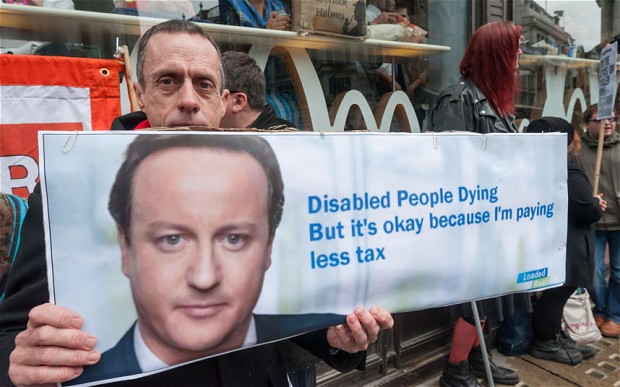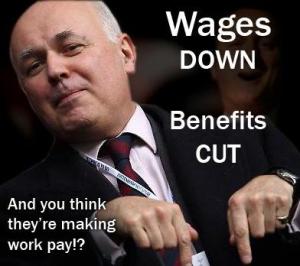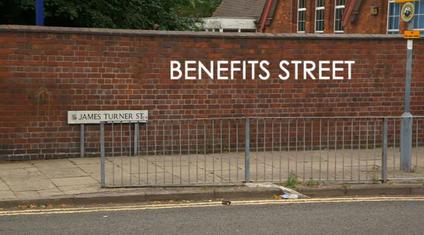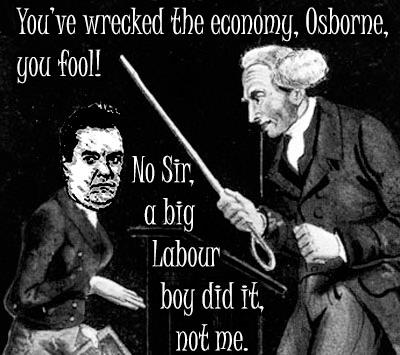Preamble
The Government has persistently ignored calls for a full assessment of the impact of Welfare, Social Care and NHS reform on disabled people and their families. The number of households with a disabled family member living in “absolute poverty” increased by 10% between 2013 and 14. Absolute poverty isn’t the same as relative deprivation – our usual measure of poverty – absolute poverty means that people can’t meet their basic needs, such as access to food, fuel or shelter.
Since the WoW petition collected 104,000 signatures, the Government has claimed the Institute for Fiscal Studies (IFS) have said it was too difficult to do a Cumulative Impact Assessment (CIA), the IFS subsequently contradicted the claim and said it could be done. EHRC and the Social Security Advisory Committee have also called for a CIA of how cuts have affected disabled people and their families. A CIA undertaken by Landman Economics, the National Institute of Economic and Social Research and The Centre for Welfare Reform have demonstrated that disabled people have been hit the hardest by austerity cuts.
You can sign the petition here.
Here is the Government’s blustering, inadequate and importantly, unevidenced response to the WoW petition:
“The Government is committed to a fair tax and welfare system where everyone contributes to reducing the deficit, and where those with the most contribute the most. Every individual policy change is carefully considered, including looking at the effect on disabled people in line with legal obligations.
However, it is not possible, using the Government’s existing analytical tools, to produce a cumulative assessment of the impact of policies on disabled people. HM Treasury has a world-leading distributional model, which it has used since 2010 to publish analysis of the impacts of policy decisions on households across the income distribution. This model uses the Living Cost and Food Survey (LCF), which does not have information on disability status. It contains expenditure information which allows analysis of the impacts of indirect taxes such as VAT and fuel duty, and underpins a unique model of public service usage; both of these enable HMT to consider the impacts of all of the Government tax and spending decisions which directly affect households.
As well as the inability to identify who has a disability in the data, most analysis of the impacts of welfare reforms tend to be limited in that they take static snapshots of benefit changes. Fundamental reforms are designed to support people in to employment and will therefore enable people to generate more income for themselves. Analysis needs to take account of behaviour change of reforms rather than the more limited approach of focusing solely on benefit changes
This analysis shows that the proportion of welfare and public service spending which benefits poorer households has not changed since 2010-11, with half of all spending on welfare and public services still going to the poorest 40% of households in 2017-18. At the same time, the richest fifth of households will pay a greater proportion of taxes than in 2010-11 as a result of government policy – and more than all other households put together.
The Government spends around £50 billion on disability benefits and services annually, and expenditure on sick and disabled people is higher than the OECD average. Welfare changes since 2010 have included protections for key vulnerable groups least able to increase their earnings, including those who need additional support as a result of disability. In the Welfare Reform and Work Bill 2015:
• Many disability-related elements of the benefit system are still uprated by the Consumer Price Index
• The additional component for those in the Support Group of Employment and Support Allowance and Universal Credit (UC) equivalents has been maintained
• Households which include a member who is in receipt of Disability Living Allowance, Personal Independence Payment, the Support Component of Employment and Support Allowance or UC equivalents are exempt from the benefit cap.Overall, reforms are focused on supporting people to find and keep work where appropriate. Growing evidence over the last decade shows work can keep people healthy as well as promote recovery which is why, as part of the Government’s objective to achieve full employment, it aims to halve the disability employment gap. Last year 226,000 more disabled people found work and to continue this success the Government has extended Access to Work to provide support to more disabled people in pre-employment, launched Specialist Employability Support to provide intensive, specialist support to the disabled people who need the most help and has extended Work Choice, providing tailored support to disabled people, to 2017. The Disability Confident campaign is working with employers to ensure that they understand the benefits of recruiting and retaining disabled people in work
Sickness Absence in the workplace is also a major issue, with employees off sick for four weeks or more being at greater risk of not returning to work. The Government recognises the importance of early support which is why Fit for Work has been developed; giving access to free, impartial work-related health advice to help employees on sick leave get back to work.
In terms of Social Care and NHS reforms, the Government is committed to supporting the most vulnerable. The Care Act 2014 introduces a modern system to promote and maintain the wellbeing of those with care and support needs so they can live independently. This includes introduction of a new national eligibility threshold which allows local authorities to maintain previous levels of access for service users. This threshold is set out in Eligibility Regulations, and local authorities cannot tighten eligibility beyond this threshold. The Act also provides new legislative focus on personalisation by placing personal budgets into law for the first time for people and carers, increasing opportunities for greater choice and control, so that people can choose social care best suited to meet their needs.”
Department for Work and Pensions
The government is quietly rewriting our protective laws
Under the Equality Act, provision was made by the Labour government to ensure that legislations didn’t discriminate against protected social groups, which included disabled people. However, the need for public bodies in England to undertake or publish an equality impact assessment of government policies, practices and decisions was quietly removed by David Cameron in April 2011. The legal requirement in the Equality Act that ensured public bodies attempt to reduce inequalities caused by socio-economic factors was also scrapped by Theresa May in November 2010, who said she favoured a greater focus on “fairness” rather than “equality.”
The Conservatives have since claimed to make welfare provision “fair” by introducing substantial cuts to benefits and introducing severe conditionality requirements regarding eligibility to social security, including the frequent use of extremely punitive benefit sanctions as a means of “changing behaviours,” highlighting plainly that the Conservatives regard unemployment and disability as some kind of personal deficit on the part of those who are, in reality, simply casualties of bad political decision-making and subsequent policy-shaped socio-economic circumstances.
Semantic shifts – how Glittering Generalities are being used to mask political acts of discrimination
The word “fair” originally meant “treating people equally without favouritism or discrimination, without cheating or trying to achieve unjust advantage.” Under the Conservatives, we have witnessed a manipulated semantic shift, “fair” has become a Glittering Generality – part of a lexicon of propaganda that simply props up Tory ideology in an endlessly erroneous and self-referential way.
It now signposts an intentionally misleading Conservative narrative, constructed on the basic, offensive idea that people claiming welfare do so because of “faulty” personal characteristics, and that welfare creates problems, rather than it being an essential mechanism aimed at alleviating poverty, extending social and economic support and opportunities – social insurance and security when people need it.
The government claims to be “committed to supporting the most vulnerable” and ensuring “everyone contributes to reducing the deficit, and where those with the most contribute the most.” That is blatantly untrue, as we can see from just a glance at Conservative policies:-
The following cuts, amongst others, came into force in April 2013:
- 1 April – Housing benefit cut, including the introduction of the ‘bedroom tax’
- 1 April – Council tax benefit cut
- 1 April – Legal Aid savagely cut
- 6 April – Tax credit and child benefit cut
- 7 April – Maternity and paternity pay cut
- 8 April – 1% cap on the rise of in working-age benefits (for the next three years)
- 8 April – Disability living allowance replaced by personal independence payment (PIP)
- 15 April – Cap on the total amount of benefit working-age people can receive
Here are some of the Tory “incentives” for the wealthy:
- Rising wealth – 50 richest people from this region increased their wealth by £3.46 billion last year to a record £28.5 billion.
- Falling taxes – top rate of tax cut from 50% to 45% for those earning over £150,000 a year. This is 1% of the population who earn 13% of the income. The wealthiest had a tax cut of £170, ooo each per year.
- No mansion tax and caps on council tax mean that the highest value properties are taxed proportionately less than average houses. Meanwhile, those previously exempt from council tax claiming social security now have to pay due to reductions in their benefit.
- Benefited most from Quantitative Easing (QE) – the Bank of England say that as 50% of households have little or no financial assets, almost all the financial benefit of QE was for the wealthiest 50% of households, with the wealthiest 10% taking the lions share
- Tax free living – extremely wealthy individuals can access tax avoidance schemes which contribute to the £25bn of tax which is avoided every year, as profits are shifted offshore to join the estimated £13 trillion of assets siphoned off from our economy.
As a consequence of the highly discriminatory and blatantly class-contingent Tory policies, inequality in the UK has risen to the highest level amongst all EU countries, and tops even the US. Rampant socio-economic inequality apparently is the new Tory “fair”.
The rise in the need for food banks in the UK, amongst both the working and non-working poor, over the past five years and the return of absolute poverty, not seen since before the advent of the welfare state in this country, makes a mockery of government claims that it supports the most vulnerable.
Income tax receipts to the Treasury have fallen because those able to pay the most are being steadily exempted from responsibility, and wages for many of poorer citizens have fallen, whilst the cost of living has risen significantly over this past five years.
The ideologically motivated transfer of funds from the poorest half of the country to the more affluent has not contributed to deficit reduction. It doesn’t take a genius to work out that the cumulative impact of Tory tax and welfare changes, from out-of-work and in-work benefits to council tax support, to the cut in the top rate of income tax and an increase in tax-free personal allowances, has been extremely regressive and detrimental to the poorest.
The revenue gains from the tax changes and benefit cuts were offset by the cost of tax reductions, particularly the increase in the income tax personal allowance, benefitting the wealthiest.
The Treasury response to this is to single out the poorest yet again for more cuts to “balance the books” – which basically translates as the Conservative “small state” fetish, and deep dislike of the gains we made from the post-war settlement. Yet for a government that claims a non-interventionist stance, it sure does make a lot of interventions. Always on behalf of the privileged class, with policies benefitting only the wealthy minority.
How can Conservatives believe that poor people are motivated to work harder by taking money from them, yet also apparently believe that wealthy people are motivated by giving them more money? This is not “behavioural science,” it’s policy-making founded entirely on traditional Tory prejudices.
The government claim that “Every individual policy change is carefully considered, including looking at the effect on disabled people in line with legal obligations,” but without carrying out a cumulative impact assessment, the effects and impacts of policies can’t possibly be accurately measured.
May I suggest that the government listens to disabled people, instead of dismissing our evidenced, valid accounts of the negative impacts of policy as “anecdotal” and attempting to invalidate our experiences. Policies ought to be about meeting identified public needs, that’s what we elect governments to do in democracies. Democracy means that the voices of citizens, especially members of protected social groups, need to be included in political decision-making, rather than so frankly excluded and rather than having their experiences negated by a bullying, aggressive political denial strategy. Public policy is not an ideological tool for a so-called democratic government to simply get its own way.
The government have persistently simply denied any accounts of the adverse consequences of their policies on disabled people, and have refused to effectively monitor policy impacts, indicating plainly that it values perverse ideology much more than it values the lives of real people.
Furthermore, the claim that “it is not possible to carry out a cumulative assessment of the impact of policies on disabled people” doesn’t stand up to scrutiny in the face of the various assessments carried out by a variety of under-resourced organisations, academics and campaign groups.
I suggest that the government pays attention to the findings of these important pieces of research, and learns from them, especially concerning how to research effectively, how to formulate evidence-based policies and how to budget for impact assessments, because if severely underfunded organisations and charities can manage that, so can the government. It’s a matter of priorities.
If the government had paid attention to laws, including international ones, as claimed, instead of trying to edit out the parts that are inconvenient to them, then there would be no need for the United Nation’s inquiries into human rights violations of disabled people, and the negative social, economic and cultural impacts of their welfare “reforms” on vulnerable social groups.
Someone please put Iain Duncan Smith out of our misery
The persistent denial from the Secretary of State for Work and Pensions that there is a correlation between the government’s welfare cuts and an increase in mortality, including suicide, flies in the face of evidence presented by the Work and Pensions Committee earlier this year, when the cross-party Committee of MPs said that since 2012 there have been at least 40 cases of people taking their own lives because of problems with welfare payments
The MPs called for an independent review into benefit sanctions, and said that they were “causing severe financial hardship” and are behind the rise in food banks. It was reported that the Department for Work and Pensions has investigated 49 cases where a claimant has died.
Of these, 40 involved a suicide, the Work and Pensions Select Committee said. But the DWP was unwilling to say how many of the deaths were a result of benefit sanctions or say if it had changed its policies as a result.
The statement: “Analysis needs to take account of behaviour change of reforms rather than the more limited approach of focusing solely on benefit changes” is another indication of this government’s perverse ideological commitment as opposed to any commitment to upholding political obligation towards meeting the needs and promoting the wellbeing of citizens.
We elect governments to meet public needs, not to “change behaviours” of citizens to suit government needs.
The government’s undeclared preoccupation with behavioural change through personal responsibility, not to be found in their manifesto, is just another revamped version of Samuel Smiles’s bible of Victorian and over-moralising hobby-horse: “thrift and self-help” – but only for the poor, of course. Smiles and other powerful, wealthy and privileged Conservative thinkers, such as Herbert Spencer, claimed that poverty was caused largely by the irresponsible habits of the poor during that era. But we learned historically that socio-economic circumstances caused by political-decision making creates poverty.
This government endorses the proliferation of insecure, low paid work, welfare that punishes people to the point of desperation, with no regard for their life or wellbeing, in order to “incentivise” them to take any job, (no matter how poorly paid and unsuitable it is) and removing income from the poorest more generally, whilst handing out our money to the wealthy. That’s not citizens behaving “fecklessly” or irresponsibly: that’s the government.
If punishing people actually worked to “help” (yet another Tory euphemism) people into work, the Department of Work and Pensions would have had no need to write fake testimonials from fake characters to attempt a nasty and ludicrous justification of benefit sanctions.
The “making work pay,” approach, which is Toryspeak for retrogressive policy-making, based on the 1834 Poor Law principle of less eligibility again. The reality is that sick and disabled people are being coerced by the state into taking any very poorly paid work, regardless of whether or not they can work, and to translate the Tory rhetoric further, Duncan Smith is telling us that the government will continue to ensure the conditions of claiming social security are so dismal and brutal that few people can survive it.
When we inform this government that people are dying, and that this is correlated with Tory policies, they simply deny it without any evidence to substantiate their claims. The lack of concern and instant dismissal of concerns about this correlation is not the kind of behaviour one would expect from government in a first-world liberal democracy.
Making work pay for whom?
Recent research indicates that not all work serves to “keep people healthy as well as promote recovery.” The assumption that work can promote recovery in the case of people with disability is both unfounded and absurd. We have yet to hear of a single case involving a job miracle entailing people’s limbs growing back, vision being restored, or a wonder cure for heart failure, cerebral palsy, multiple sclerosis and lupus, for example.
The government’s Fit for Work scheme is founded on exactly the same misinformative nonsense. It supports profit-making for wealthy employers, at the expense of the health and wellbeing of employees that have been signed off work because of medically and professionally recognised illness that acts as a barrier to work capabilities.
Furthermore, there is no proof that work in itself is beneficial. Indeed much research evidence strongly suggests otherwise.
And where have we heard these ideas before: “Arbeit macht frei“?
The Behavioural Insights Team (Nudge Unit) is an arm of government that influences and shapes experimental policies which act UPON as opposed to FOR the population, without their consent, to CHANGE PEOPLE’S BEHAVIOUR. That’s a branch of the government controlling or attempting to control people’s everyday actions without them knowing about it. Or consenting to it.
It’s a dangerous road to travel down – the political notion that citizens should be totally subject to an absolute state authority is the basis of totalitarianism.
The government frequently bandy around phrases and terms like “behavioural change” and “incentivising” but this is the new policy marketingspeak – as irritating and cringeworthy as meaningless corporatespeak, including soundbites – empty generalities – like “blue sky thinking,” and “upskilling.” The Nudge Unit’s behaviour theories (not “science”) are nothing more than psycho-linguisticbabble that is constructed as a prop for Tory small state ideology, and to support their aim of steadily dismantling the gains of our post war settlement. Cut by cut.
It’s unacceptable in a so-called liberal democracy that a government endorses “incentivising” people (a psychocratic euphemism for state coercion) to take any insecure, poorly paid work that doesn’t alleviate poverty, by the use of sanctions, which entail the removal of people’s lifeline benefits originally designed to meet basic survival needs – food, fuel and shelter – making people desperate and placing them in situations of crisis and absolute poverty. How on earth is that “fair” and how does it “make work pay”? It’s morally repugnant, ethically reprehensible, academically nonsensical and democratically untenable.
It’s not possible to “incentivise” people by starving them.
Cruelty is the new “help”
The claim that “Government is committed to supporting the most vulnerable” also doesn’t stand up to scrutiny, given the Conservative policy record, including cruelly scrapping the Independent Living Fund, which as had a hugely negative impact on those trying their best to lead independent and dignified lives, and the Access To Work funding has been severely cut, this is a fund that helps people and employers to cover the extra living costs arising due to disabilities that might present barriers to work.
Finally, I feel obliged to point out that the welfare “reforms” have cost far more to implement than they have saved the “tax paying” public, indicating once again that the welfare “reforms” and other austerity measures are not because of economic necessity: they are entirely ideologically motivated.
I strongly suggest that We reduce the Welfare Budget by billions: by simply getting rid of Iain Duncan Smith.
—
Related
The government just delivered a massive ‘F*ck you’ to sick and disabled people across Britain – Kerry-Anne Mendoza
More about the WoW campaign:
Wow petition and campaign site
Update: Today – 3rd November – The WOW campaign have published their own response to the government: WOWpetition Press Release 3Nov2015.pdf



















 “We feel utterly betrayed by the Tories,” said another father, who is having his family working tax credits slashed.
“We feel utterly betrayed by the Tories,” said another father, who is having his family working tax credits slashed.
